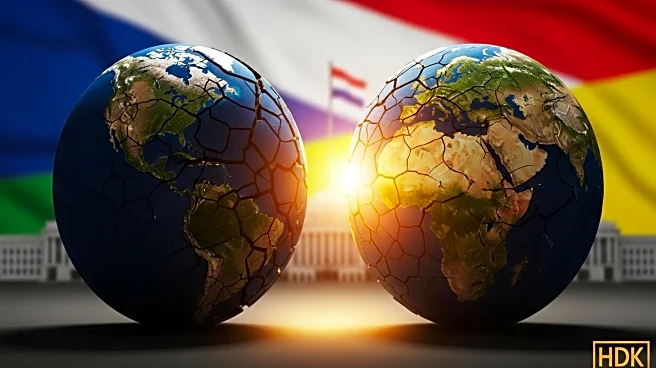What is the story about?
What's Happening?
The European Union has confirmed the reinstatement of sanctions against Iran, aligning with a similar decision by the United Nations. These sanctions include freezing Iranian bank assets, imposing travel bans on certain officials, and prohibiting Iran from purchasing and transporting crude oil. The decision was made by the United Kingdom, Germany, and France, collectively known as the E3, who stated they had no choice but to trigger the procedure. Despite the sanctions, the E3 emphasized that diplomatic negotiations remain an open option for Iran.
Why It's Important?
The reinstatement of sanctions on Iran by the EU is significant as it reflects ongoing international concerns about Iran's actions and policies. These sanctions could have substantial economic impacts on Iran, potentially affecting its oil exports and financial transactions. The move also underscores the EU's alignment with the UN's stance on Iran, highlighting the international community's unified approach to addressing perceived threats. For the U.S., this development could influence its foreign policy and diplomatic strategies in the Middle East, as well as its relations with European allies.
What's Next?
The reinstatement of sanctions may lead to increased tensions between Iran and the international community. Iran might respond with its own measures, potentially escalating the situation further. The E3's call for Iran to refrain from escalatory actions suggests a desire to avoid further conflict. Observers will be watching for Iran's response and any potential diplomatic engagements that might arise. The situation could also impact global oil markets, depending on Iran's actions and the international community's response.















